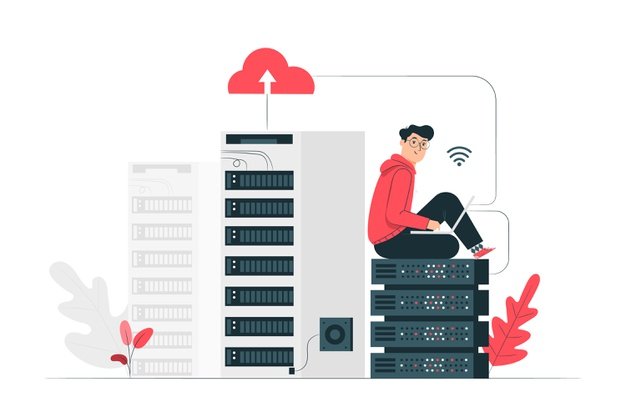Every industry has its own set of trends and the web hosting industry is no exception. Every year, new trends and developments are discovered to help keep with the ever-changing demands of the industry, and web hosting providers struggle to be among the first to offer these experiences to their customers.
If you already own a website, it is certain that you already host one web hosting company or another, and if you intend to build one in the coming year, you will also require the hosting services of a web hosting company. This article focuses on some of the top trends you should be on the lookout for from your web host, as they will help optimize your website’s performance, while significantly impacting the internet landscape.
Top Web Hosting Trends for 2020:
1. Green Hosting:
Running a website, blog, or internet application on an eco-friendly and energy-efficient server is bound to appeal to a lot of people, particularly now that more people are becoming increasingly aware of their environment and are conscious of reducing their carbon footprints.
In 2020, we will be seeing lots of web hosting companies invest in eco-friendly schemes and participating more in eco-friendly initiatives that aim to minimize damage to the ecosystem.
Green web hosting here means running hosting infrastructure on servers, routers, and equipment that runs on low energy, while at the same time implementing policies that encourage recyclable energy.
This trend will greatly contribute to the recovery of the environment and as a website owner; you will have the satisfaction of knowing that you are indirectly contributing to a healthier and better environment.
2. Cloud Hosting:
Cloud computing is not a new concept and is a technology that has come a long way in recent years. However, not many people understand what cloud computing is, and even fewer people make use of it.
However, this state of affairs is bound to change in 2020 going forward. In the first place, cloud technology has already entered into the web hosting industry, providing better site performance than website owners are used to.
Unlike other forms of hosting that relies on a physical server, cloud hosting stores data on a cluster of servers, making it virtually impossible to experience downtime, server errors, or any of the other problems experienced with traditional web hosting.
The beauty of this system is that you only get to pay for the resources you use, meaning that you can scale up down your website resources to fit your immediate website needs. Suffice it to say that the benefits of cloud hosting mean that a lot of websites will take advantage of this trend in the coming year.
3. Better Authentication Protocols:
Security has always been one of the major concerns of website owners, with the recent rise in the level of cybercrimes, particularly those targeted at small businesses.
As a website owner, one of your primary responsibilities is to make sure that the personal and financial details of your users are safe and secure. But this can be a difficult assignment if your web hosting provider is not up to the task.
Thankfully, the coming year will see more in the areas of website security. Already, Google has made it compulsory for websites to have an SSL certificate installed if they want to get the search visibility they deserve, but 2020 will bring with it improvements in how websites are accessed and secured.
For example, two-factor authentication (2FA) will become a popular feature for website owners as more and more web hosting companies will integrate this feature into their security systems. Other security features to look out for include compliance checks for common CMS vulnerabilities and encrypted storage.
4. Website Builders:
Not too long ago, WYSISYG website tools were popular on the internet, giving anyone with an idea the opportunity to design their website without any technical or coding experience. But the rise of content management systems relegated these tools to the background until they all but disappeared. Thankfully, web hosting companies are again seeing the benefits of these tools and have developed a better version. Enter online website builders.
Just like the WYSIWYG of old, website builders allow you to design, publish, and promote your website in just a few clicks and with no coding experience or technical skills. But this time around, these online tools can build even advanced websites.
For small businesses nursing their finances, this means that they too can develop and run a website without spending scarce financial resources on a website designer. If the signs on the ground are anything to go by, we should expect to see highly developed website builders from almost all web hosting providers by 2020.
5. Domain research tools:
Domain research tools have been available for years, with Nameboy being one of the oldest on the internet. But these days, it is becoming increasingly difficult to come up with the perfect domain name, especially because almost all the good.COM domain names are taken.
Of course, if the.COM of the domain name you are searching for is taken and your website is a target at a country like New Zealand, you can always opt for the .CO.NZ alternative and immediately register it with a registrar like Domain Names From Freeparking NZ but in the coming year, finding your ideal domain name will no longer be a difficult thing.
To ease the process of creating and registering domain names, domain name registrars, most of which also double as web-hosting providers will integrate domain research function in their domain search tools. With this system, if the domain name you want is already taken, you will have hundreds of similar suggestions to choose from across a variety of popular and not so popular domain name extensions.
6. Automated Backups:
Already, many web hosting providers offer automated backup to their customers, but for most of these providers, this feature is an extra add-on feature that attracts an extra fee.
With the increasing popularity of CMS applications like WordPress, automated backups will soon become a common feature in web hosting.
Not only as backups on CMSs easy to run, but they also tend not to take up lots of space as only the files needed to run the site will be backed up, meaning that you will be able to get your site up and running in no time, should your site suffer damage for any reason.
This automated backup system can be configured to run monthly, weekly, daily, or at any interval the site owner prefers.
Conclusion:
While it is true that some of these developments are already available today, they are not as common as they should be, but in the coming year, these and many more developments will come up in the web hosting industry and lots of site owners will be able to take advantage of them.
And best of all, this change will significantly improve how you run your website.
Read More:

























